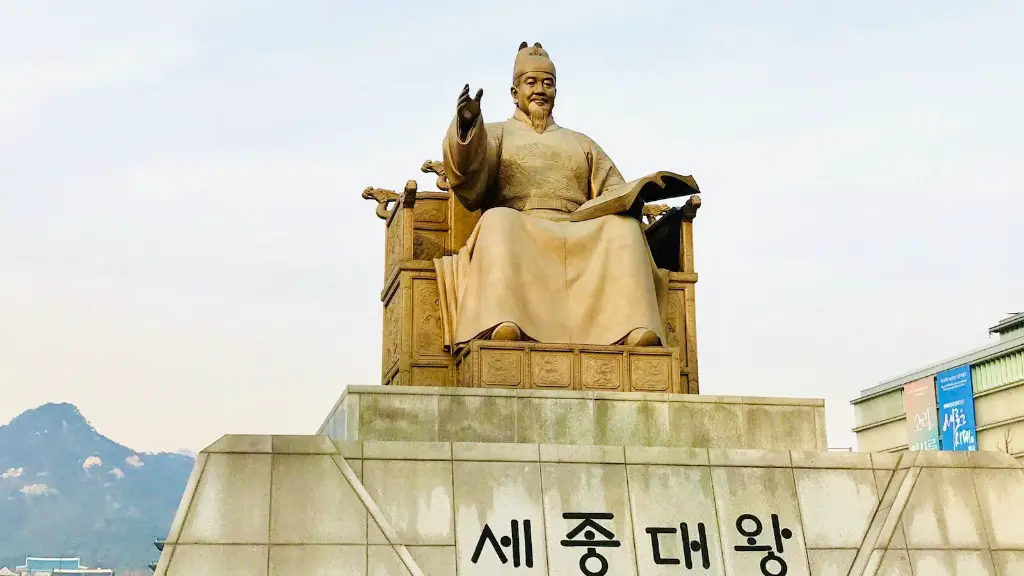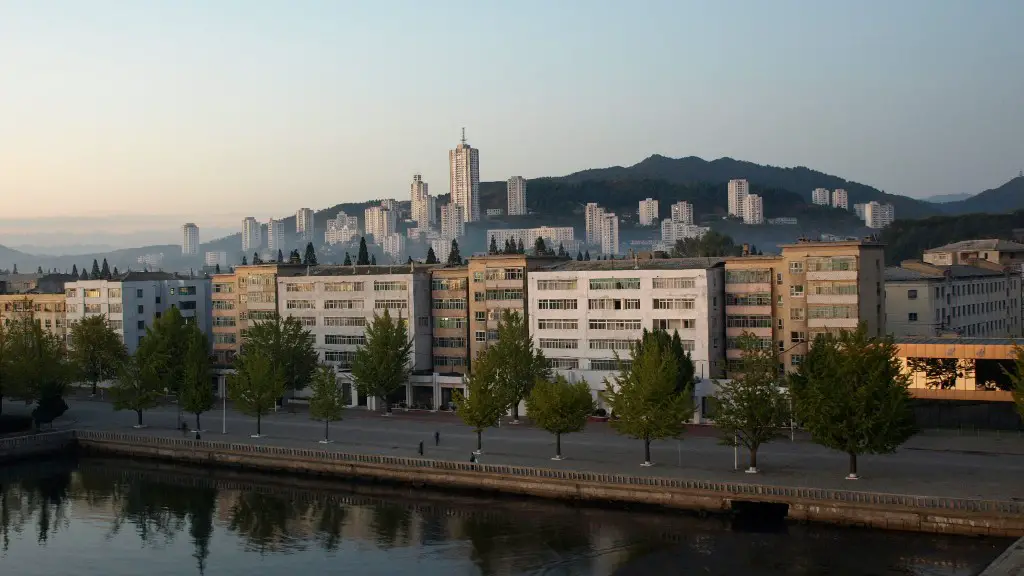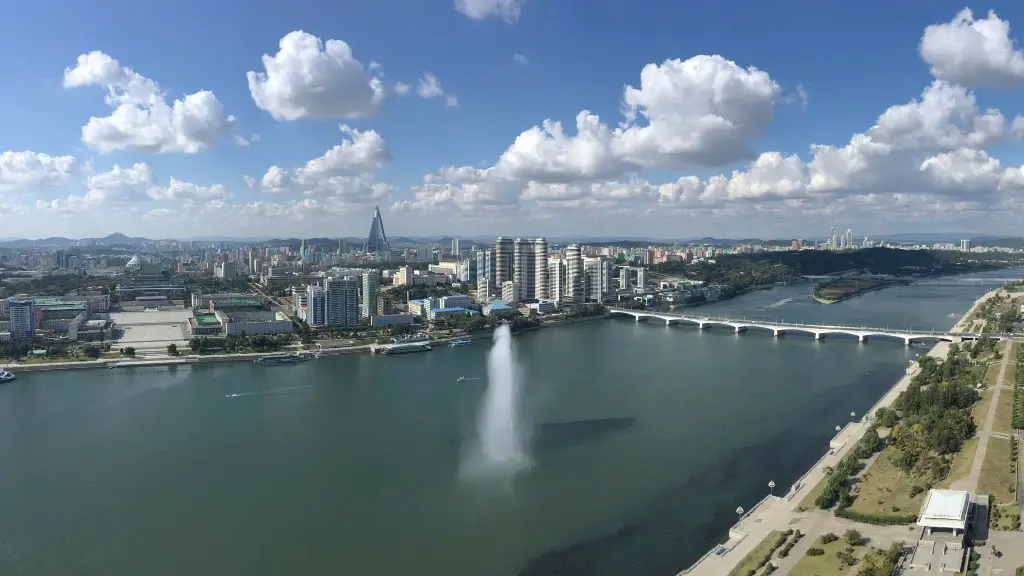Where Is North Korea On The Economic Continuum
North Korea is a nation shrouded in mystery and with a long history of secrecy. This has led to a certain amount of speculation and even mythologizing over its economy and where precisely it stands on the global economic continuum. To understand North Korea’s position relative to the other nations of the world, one must look at its history, its current state, and its possible future.
North Korea was originally an industrialized nation after decades of development, however this came to an abrupt end during the Korean War. Over the following years, the North Korean economy suffered and per capita incomes dwindled to levels much lower than those in South Korea. This is due, in part, to the deleterious effect of a series of five-year plans implemented by the North Korean government, which emphasised heavy reliance on the military-industrial complex for development.
In recent years, North Korea’s economy has seen slow but continued growth. This growth has primarily been driven by two sources – investment from China and the country’s own self-generated initiatives. China has emerged as North Korea’s chief export partner and it has been willing to invest heavily in the North Korean economy. North Korea, however, has also been able to attract investments from other countries and state-run businesses have seen a steady rise in profits.
This growth, however, is far from substantial and the country still faces several challenges. In terms of income levels, approximately one third of North Koreans remain impoverished and the country’s Gross Domestic Product is far below that of developed countries. Further, there has been a slow but gradual increase in foreign debt and investor confidence in the North Korean economy is still low. Despite its recent progress, North Korea is still classified as a low-income nation.
The prospects for the North Korean economy in the future are uncertain. On one hand, if the country is able to maintain its current level of growth, it is possible that North Korea could become a middle-income nation by 2050. There is also the possibility that the country may be able to tap into other sources of growth by exploiting its extensive natural resources, although the extent to which this is possible is subject to international sanctions.
In conclusion, North Korea’s position on the global economic continuum is one of low-income status, but with the potential for growth in the future. Its success or failure will depend on its ability to attract additional foreign investment and to exploit its natural resources to acquire the necessary capital for development.
What International Cooperation Can Do
When it comes to international cooperation in the North Korean economy, the greatest contribution any nation can make is a diplomatic one. While economic sanctions have been imposed by the United Nations, these have often only served to create more difficulties for the people of North Korea and have not served to create an atmosphere conducive to economic development.
The best scenario would be for the UN to act collaboratively with North Korea towards economic stability and development. This would mean that North Korea would be able to access the benefits of international trade and development aid and could benefit from the collective efforts of the global community in seeking to boost the economy. This could bring about a new era of prosperity for the North Korean people and would be essential for capital investment and technological advances, which would in turn boost income and employment.
The international community also has an important role to play in terms of providing aid for North Korea. This is essential for North Korea to develop the infrastructure necessary to boost incomes and development levels and thus establish a new foundation for growth. Additionally, groups such as the World Bank and the International Monetary Fund could provide funding and technical advice to enable the North Korean government to act more efficiently in the economic sphere and to encourage greater private sector investment.
It is clear that the international community has an important part to play in assisting North Korea to reach its economic potential, by helping to create an atmosphere that is conducive to economic growth. Such a scenario would be in the best interests of all parties involved, as it would open up new trade opportunities and develop deeper ties between nations.
Is North Korea Suitable for Investment?
For investors, deciding whether to invest in North Korea or not is a tricky decision. On the one hand, there is potential for great returns and investors in North Korea would be entering relatively untapped markets. On the other hand, the country is still somewhat shrouded in mystery and the political and economic environment can be unstable.
Investors must approach any investments in North Korea with caution and must ensure that they thoroughly research the financial risk factors before entering the market. This means looking at the country’s political and economic situation, its legal and regulatory framework, and potential corruption. It is also important to look at the current state of the North Korean economy, its infrastructure, and its ability to absorb foreign investment.
At present, the North Korean economy remains unstable and unpredictable, so there is a considerable amount of risk involved in investing in the country. It is also important to be aware that any gains in North Korea may not be protected by international law. However, if an investor has the necessary resources and is willing to take a chance, there is the potential for great returns in the near future.
The extent to which North Korea is suitable for investment is largely dependent on the goals of the investor. If the investor is looking for a safe and stable investment, then North Korea may not be the best place to make their money, however if they are willing to take a gamble and have the resources to do so, then there is the potential to make big profits in relatively untapped markets.
The Influence of the US
The economic relationship between North Korea and the United States has been strained for many years, but recent events have seen progress in terms of diplomatic relations. This has been welcomed by both countries, as it has allowed for increased dialogue and the potential for trade deals to be made, creating new opportunities for both economies.
The importance of the US as a global economic powerhouse cannot be understated, and it can help North Korea to reach its development goals. Major US companies may be willing to invest in North Korea if the regulatory and political environment becomes more welcoming to foreign investors, and this could be the type of catalyst needed for North Korea’s economic growth. Additionally, the United States could provide crucial financial and technological assistance to North Korea to help it to meet its development needs.
In conclusion, while the level of economic interdependence between the United States and North Korea has yet to be established, there is potential for US involvement to have a major impact on the North Korean economy. This could open up additional opportunities for foreign investment and provide the necessary capital to help North Korea reach its development goals.
North Korea’s Emerging Markets
With the international community slowly beginning to open up trade partnerships with North Korea, an exciting new array of emerging markets have begun to emerge. These markets are still in their infancy, but they present vast potential for investors and businesses alike. North Korean citizens are also emerging as a major consumer group and products from outside the country are beginning to become more commonplace in North Korean markets.
One area where North Korea could potentially benefit from this influx of foreign products and investmants is in the emerging tourism sector. Tourists from neighboring countries, particularly South Korea and China, are beginning to visit the country for business and recreational purposes. This type of tourism could help to generate much needed foreign exchange for North Korea, as well as providing an opportunity for North Koreans to come into contact with others from different parts of the world and learn more about international culture and lifestyle.
North Korea is also seen as holding potential for investment in agriculture and energy sectors, particularly due to the country’s abundance of natural resources. Although the legal and regulatory environment in North Korea is still uncertain, the current situation presents exciting opportunities for investors and businesses, as well as providing a potential source of income for North Korean citizens who could be employed in the various new industries.
In conclusion, while North Korea still has a long way to go before it can truly take its economic place on the world stage, the potential for economic growth is there and with the right investments, it may yet be able to succeed and reach its full potential.
What North Korea Could Learn from its Neighbors
The potential for economic growth in North Korea is great, but the country must look beyond its own borders for guidance and advice on how to move forward in its development. In particular, North Korea can look to its nearest neighbors – South Korea and China – for insights into how to develop its economy and how to attract foreign investment.
In terms of economic development, North Korea can learn from South Korea’s impressive rates of economic growth and the country’s commitment to innovation and technology. South Korea has also developed an effective system of regulation and oversight that promotes foreign investment, while protecting the interests of local companies and citizens. Similarly, North Korea can look to China’s economic policies, which have helped the country become an economic powerhouse.
In terms of foreign investment, North Korea has much to learn from both South Korea and China. South Korea has a well-established culture of foreign investment, while China’s relaxed regulations have opened up the market to a wide range of international investors. For North Korea to truly benefit from foreign investment, the country must make efforts to attract investors, such as providing incentives, relaxing regulations, and creating a safe and secure investment environment.
In conclusion, North Korea has much to learn from its neighbors in terms of economic growth and foreign investment. By taking a cue from South Korea and China’s successful economic strategies, North Korea may be able to achieve the same levels of growth and success in the future.





